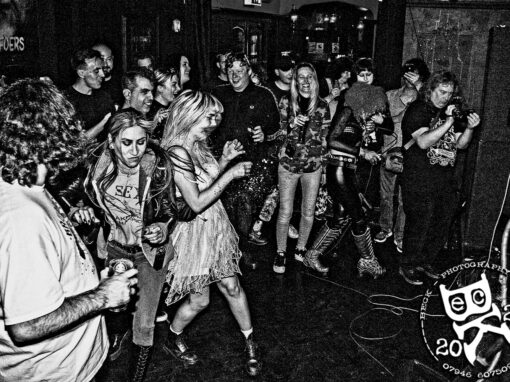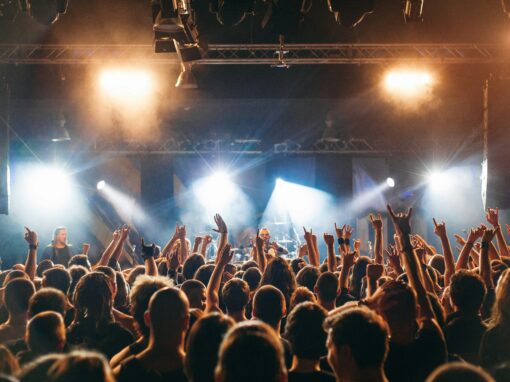Image by Beth Macdonald from Unsplash
From unboxing toys on YouTube to modelling clothes on Instagram, the lives of child influencers are on full display and big money is on the line. But as this new wave of child influencers arise, researchers, concerned parents and those watching the new Netflix documentary ‘Bad Influence’ are all asking one big question: At what cost? I spoke to researcher Kate Delmo about the ethics of putting children in the spotlight.
Once upon a time, ‘mum-bloggers’ ruled the internet. By snapping pictures of their toddlers in cute outfits and sharing relatable family moments online, they soon grew an audience. But what began as innocent content soon evolved.
Parents quickly noticed that their kids caught the attention of viewers more than anything else, largely because as Kate says, “the cuteness factor sells”.
Whilst this seemed harmless at first, Kate explained that this soon turned children into marketing tools: “Social media content became monetised and these children became an extension of the work that their parents would do online.
“Now, kids aren’t just in the content, they are the content.”
Today, children as young as two have brand deals, production schedules, and social media profiles with millions of followers. Their parents? Often ex-influencers themselves, or full-time managers of their kids’ online personas.
Kate explained that this type of child-orientated content is so popular largely because it feels authentic: “Brands love that influencer content looks organic. After all, it’s not a studio shoot, you don’t need five cameramen and it’s not scripted. All you need is a smartphone and a moment at home.” But behind that ‘natural’ content is planning, pressure and often undisclosed advertising.
Take YouTube, for example, where the child-influencing phenomenon all began. Ryan Kaji, known for his toy-unboxing videos, soon became a household name (and a multimillionaire) before he had even finished primary school. But what seemed like a child innocently playing with toys was in fact a money-making-operation managed by his parents and teams of marketers.
Kate explained that this makes it easy to forget that behind the screen is a child, one who may not understand the implications of being watched by millions: “A child doesn’t know how to opt out. They often don’t even know they’re part of a monetized brand strategy.
“We don’t know if they are a part of the conversations with brands, and it’s often obvious that they’re not because some of them are only two years old or even infants and they’re already being turned into a brand. I just worry about the labour implications of this.”
While child actors in traditional advertisements have long been protected by labour laws, the digital space is far more ambiguous. In the United States, laws like the Coogan Act require a portion of child actors’ earnings to be set aside until adulthood. But for child influencers, especially those starring through their parents’ accounts, most don’t actually see much of their money.
Kate emphasized that children should have more control over the income they generate: “They’re working. Whether it’s opening toys or filming brand-sponsored skits, that’s labour. But who negotiates those deals? Their parents. And often, it’s the child’s income that sustains the whole family, which crosses the line into child labour if we aren’t careful about it.” In some cases, Kate explained, that parents have quit their jobs entirely to manage their child’s influencer career full-time.
Countries like France are beginning to implement regulations, whether it be through limiting screen hours, requiring funds to be put in the child’s name, or treating social media work as formal labour. But much of the world lags behind. Without legal frameworks or regulations in place, children remain at risk.
So much so that some children grow up so chronically online that they don’t know any other way to exist. Kate raised concerns that constantly filming these children becomes the norm which blurs boundaries: “Is it play or is it performance? Is it home or is it a film set? When a child is always being watched and always expected to perform, that shapes their sense of self.”
And when everything is content, even the most personal moments are posted online. Kate explained that the emotional and psychological toll of sharing such private moments is worrying: “We’re seeing stories of children being bullied at school because their peers can see videos of them when they were younger in their nappies.
“One teenager found out her mom had shared details about her first period with millions of strangers. How do you ever come back from that?”
Privacy, or the lack of it, is a huge concern amongst researchers in general. In a digital age where everything on the internet is permanent, Kate explained that children should have the right to be forgotten: “These kids didn’t choose to be online. They didn’t consent to a digital archive that will follow them for life.
“The people that are subscribing and following these children are often strangers and when they have free reign to keep accessing a child’s material it becomes problematic. Children are not only at risk of having their privacy invaded, but also at risk of sexual exploitation. I can see the child playing at home, I can even see them sleeping because they’re being photographed by mum to advertise a blanket brand. It’s worrying when people, who could be dangerous, have this easy access to a child.”
There’s also the question of education. For child influencers earning hundreds, and thousands and sometimes even millions of pounds before they even reach secondary school, mainstream education loses its appeal.
“We tell kids to study hard, get a degree, and then earn a living. But what happens when they’ve already achieved that at eight years old? The value of learning and discipline becomes harder to sell when a nine-year-old can do whatever they want by opening toys in the comfort of their home.”
So, what can we do about this?
Kate says it takes more than just these influencer families alone. Of course, mum-bloggers need to think twice about whether their children should be multi-million-pound celebrities at the age of nine, or whether they should have a normal childhood first, but it goes further than that.
Kate says that social media platforms need to be more involved in trying to police the online world. The only problem is there’s no incentive for to keep children off the internet when it’s these same children that keep users logging into their platforms and earning them money.
It’s unlikely that we will see these changes without proper legislation in place. Kate added: “The governments need to come into the picture. You legislate not to punish child-influencers but so that there are clear boundaries on what’s allowed and what isn’t.”
Alongside licensing laws, Kate also urges the big brands that work with these child influencers to take more responsibility: “They’re the ones with the money fuelling this economy, but where is their moral compass? At the end of the day it’s a child in the middle of it all so we need to do better.”
For more social media stories click here: https://illuminatedmag.co.uk/social-media/





